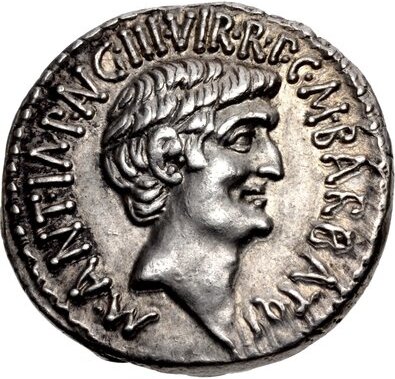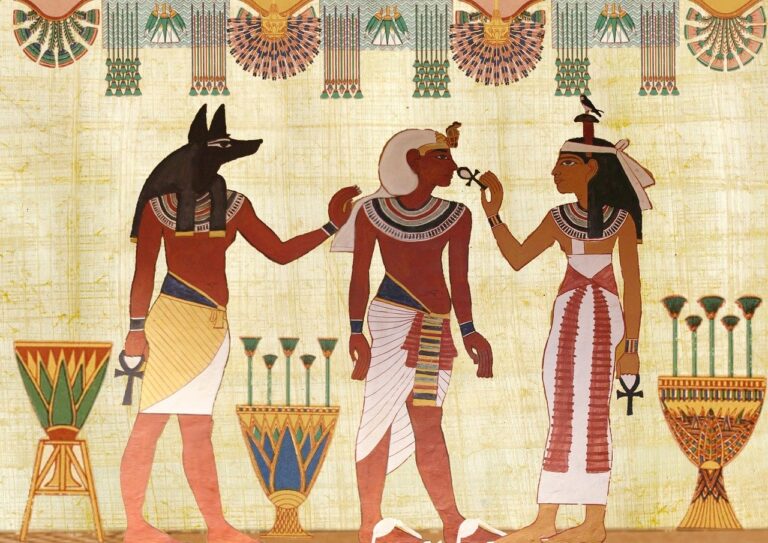History of Rome: brief summary
From the foundation of Rome to the rise of Octavian, passing through Julius Caesar. A Brief summary of Roman history.
The history of Rome: from the foundation to Octavian
The foundation of Rome derives from multiple legends. The first: the hero Aeneas, having escaped from Troy, took refuge in Lazio and after subduing the populations founded Lavinium, after having married Lavinia, daughter of the Latin king. The second: Aeneas’ son, Julio, settled in the Alban mountains where he founded Alba Longa. The third: the god Mars had two children with the king’s daughter Silvia of Alba Longa. King Amulius abandoned the twins in the Tiber.
These were nursed by a she-wolf and then found by a farmer. When they grew up they killed King Amulius and founded a city. After fighting his brother, Romulus became king of Rome.
The origins of Rome
Archaeological research has shown that the first settlements in Lazio began in the 5th and 6th centuries, where a plain of 2000 km/2 extended. In this plain the Tiber flowed and there were 7 hills. Under the reign of Ancus Marzio, in the first period of the monarchy, a bridge was built that connected them, thus promoting trade.
This league was called the Septimotius. The real city of Rome was created shortly after, thanks also to the new settlements for trade. The various villages gave themselves a leader, the “rex”. Rome was based on agriculture and during the rule of the Tarquin kings, there was international trade, which allowed the introduction of money in the 4th century.
The political organization
In the first centuries of its history, Rome was a city state similar to the Greek ones, with a single magistrate called rex elected for life. During the monarchic period there were 7 kings. The rex’s task was to command the city in war and to represent it before the gods.
In addition to the rex, there were 2 assemblies:
- the senate which was made up of different heads of family groups, there were a total of 300 senators. This had the task of “associating” the king in decisions and was consulted for new laws. This included gentes (free people who believed they had the same descendant) and familiae (free people and slaves). But only the heads of the Gens could sit in the Senate.
- There were a total of 30 meetings (10 people per tribe). These had to: form the army, elect the senators, and could declare war.
Social classes
In ancient Rome there were mainly 2 groups of people:
- the patricians who were the rich, and who enjoyed all the privileges
- the plebeians who were the people and had to work for the patricians. They will then gain access to the consulate (446)
In the Roman age there was a patriarchal system which assumed that the head of the family was the eldest and everyone had to submit to him.
Religion
The Roman religion was different from that of the Greeks, here there were deities but they were not like the Greek ones.
The Roman religion manifests itself through cult practices linked to daily life. The cult of the Lares (protectors of fire) and the penates (protectors of the family) was particularly important. The king was also the priest. However, there were some religious positions, the most important were the pontiffs. The salts were so called because they performed a war dance accompanying it with magical words. The wishes interpreted divine will. The fetials were the ones who made the declarations of war
The Etruscan counteroffensive
The Tarquins attempted to return to Rome using King Porsenna, who was forced to retreat due to the resistance of the population. However, King Porsenna dictated laws, such as the one that they could not have iron objects except for agriculture. Even if he failed to establish his dominion, it can be thought that for some years Rome had to submit to him.
The Latin league and the clash with Aequi and Volsci
There were many clashes between Rome and the Latin cities which culminated in the battle of Lake Regillus (496 BC). It is not clear who won, but an alliance pact was stipulated with the Latin cities, the army, for example, was to be commanded in alternate years by a Roman and a Latin king. The Apennine populations (Equi, Volsci and Sebini) wanted to conquer the Roman territory, but thanks also to the agreement with the Latins, the latter managed to defeat them.
The situation after the Punic wars
In the 8th century Rome dominated practically the entire Mediterranean. The wars had made some rich, but impoverished many farmers who had been called to war for military duty. Once they returned, their lands remained uncultivated and they did not have the money to leave again. The only way was to sell their land to landowners and work as wage earners. However, the landowners preferred slave labor and so the small farmers flocked to Rome as unemployed, creating the proletariat.
In this period the knights became rich, not only thanks to the acquisition of lands, but because they became traders and contractors. Meanwhile, on the lands of the landowners, the slaves worked under the farmers who reported to the master. In addition to slaves employed in the fields, there were also public and domestic slaves. The slave market was increasingly large, and the major center was the island of Delos.
In this period, the now poor farmers, in order to survive, decided to become clientes and go under the protection of the big families, offering in exchange to vote for them and say what they wanted in public meetings. At the same time as this, there was increasing discontent among the various Roman territories: the Italians who had always behaved well with Rome were treated as subjects and the provinces were increasingly harassed. To Rome’s difficulties were therefore added external ones that politics were unable to manage. We were heading towards a social clash, until Tiberius Gracchus arrived.
Tiberius and Gaius Gracchus
Tiberius Gracchus, son of a patrician family, saw that the situation in Rome was degenerating. In fact, the majority of the population lived in conditions of poverty and according to him this would be the ruin of Rome.
The peasant class had transformed into the proletariat and consequently the army (made up of peasants) was also decreasing. If this phenomenon continued, the army would no longer be able to face major conflicts. Tiberius then decided that the only way to remedy this was to rebuild the houses of the small landowners.
In 133 BC. Tiberius had himself elected tribune of the plebs, he would thus have been able to propose an agrarian reform which, if voted for even by the plebs alone, would have had an effect on everyone. However, this law made no sense because the senatorial class had appropriated public lands. In reality, Tiberius had limited himself to reforming an old rule which said that no one could own more than 500 jugers (125 hectares) of land. The new law made it possible not to ruin the senators and to recover space to build new plots (30 acres) to be allocated to the farmers.
In 132 BC the landowners opposed it and so Tiberius had himself elected tribune, but this position could not be exercised more than once. The landowners then argued that it wanted to take over power and the senate then voted for the “cult senate” which gave the consuls extraordinary powers in case of danger. Tiberius was subsequently killed.
About 10 years later, his brother Gaius resumed his brother’s policy. He became tribune in 123 BC. Gaius understood that to oppose the Senate he needed to be supported by everyone. He therefore assigned the collection of taxes from Asia to the knights, introduced free grain distributions, alleviated military service and the powers of commanders, as well as re-proposing his brother’s agrarian law. In 122, thanks to a new law, he was re-elected tribune and introduced a new law that recognized Roman citizenship for all members. In this way, however, the plebs began to get angry because Gaius was endangering their fight to achieve better living conditions. Now Gaius was hated by the aristocratic class and the plebs, and in 121 he was not re-elected. Gaius then asked the slaves to fight with him, promising him freedom, but in the end he was killed.
After the death of Gaius Gracchus, the Senate returns to govern and everything goes back to how it was before. Those who supported the policy of the Senate were opposed by the populares (knights and plebs) who had achieved a certain well-being. These were sometimes joined by the urban proletariat who did not have a precise political project, they went based on what was best for the future. In the first century therefore there are many social tensions and at a certain point the plebeian tribunes no longer have the strength to face them; they then turn to military commanders. The foreign policy of this period was characterized by two events: the Jugurtine war and the one against the Cimbrians and Teutons.
Over time Mario lost the support of the more popular classes and the politics of the poulares remained defeated. After the dictatorship implemented by Silla, the latter took leave of political life in 79.
Replacing him was Gnaeus Pompey. Returning to Rome after having been in Spain, Pompey had the desire to become consul, but the Sullan reforms did not allow him to do so because he had not been quaestor and praetor. He then decided to make an agreement with Crassus (former lieutenant of Sulla) and promised the popular people to democratically modify the constitution if they elected him consul. The Senate was then forced to give in and in 70 Pompey and Crassus became consuls.
During Pompey’s absence in Rome the populares and the Optimates clashed with Cato and Cicero. On the side of the populars there were also Crassus, Caesar and Catiline. Crassus and Caesar form an alliance (Caesar uses Crassus’ money) while Catiline runs for consul.
After a year of consulate, Catiline goes to Africa for 2 years but here he is accused of extortion, when he returns he can no longer become consul. He therefore allies himself with the plebs, losing the support of Crassus and Caesar. Meanwhile, Catiline wants to kill Cicero but when he finds out about it he tells it to the senate who has him defeated together with his followers.
Meanwhile, Caesar was returning from Spain and wanted to become consul using the votes of Crassus, but he needed more help. He therefore decided to make an agreement with Pompey and Crassus, the first Triumvirate:
- Pompey would have supported Caesar’s candidacy
- Caesar would support Pompey
- Crassus would have given the land to Pompey
Caesar becomes consul and then decides to kill Cicero and Cato.
During Caesar’s accession in Gaul, the populares were engaged in fights with the bands of Milione, who was sent by the aristocrats to fight the populares. Meanwhile, Caesar returned to Italy in 56 BC and met Pompey and Crassus in Lucca, where he made a new agreement where Caesar would take the proconsulate of Gaul and Pompey and Crassus would be consuls in 55 BC
Pompey wanted to engage in a fight with Caesar and had lined up as a defender of the senatorial aristocracy. In 52 BC Crassus died fighting against the Parthians and Pompey was appointed Consul by the Senate.
Meanwhile, thanks to Caesar, Gaul had become a Roman province. Caesar therefore wanted to become consul, but the senate on the advice of Pompey ensured that the candidates had to be present in the city. Caesar would then have to present himself as a private citizen and as a condition of doing so he demanded that Pompey disband his army. After having been rejected by the Senate, in January 49 he started a civil war by crossing the Rubicon.
Pompey then fled to Egypt where he was killed. Meanwhile, Caesar, having eliminated the king of Egypt, has Cleopatra marry his brother and he continues to fight, until he kills all the Pompeians. Caesar then became the undisputed master of Rome.
While he was in government, Caesar made a series of reforms and new laws that favored even the poorest population; as well as implementing new public works.
The optimates, however, feared that Caesar wanted to take over Rome and on March 15, 44, while he was on his way to the Senate, he was stopped and killed.
When Caesar’s will was opened, however, it was discovered that he had left everything to Octavian who decided to implement the last things that Caesar wanted. He sold all his possessions and distributed the money to the poor, becoming very popular among the plebs and was also supported by Cicero. Anthony, who had become governor of a province, obtained the approval of a law that guaranteed the exchange of the provinces, thus taking away the entire government from Decimus Brutus.
In the meantime, Cicero had lashed out against him and Decimus Brutus decided to head towards the region, determined to subjugate it by force. In 43 Antony was defeated.
Meanwhile, the Senate begins to think badly of Octavian and when he asks him to become consul, he denies him everything. Octavian then decides to ally himself with Antony. In 43 he returned to Rome and was elected as consul by the comitia. In the same year he meets Antony and Lepidus and the second triumvirate is born. The agreement was to punish Caesar’s killers, and each of the 3 had a land to rule. First they used the proscription lists. Once the various wars were over, however, the rivalry between Octavian and Antony was reborn and they once again came to terms to divide the lands between them.








One Comment
Comments are closed.